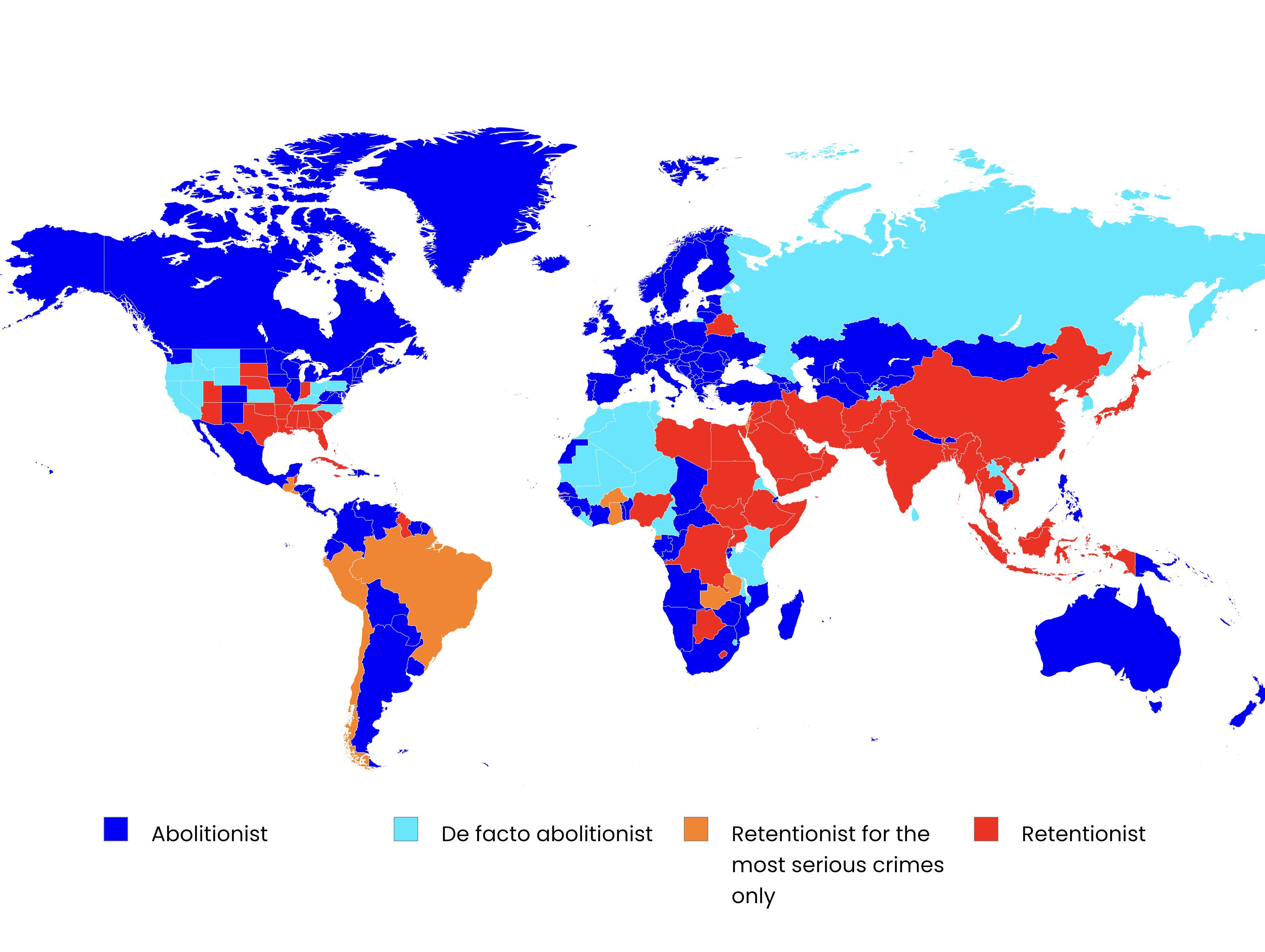Capital Punishment Around the World Map


Marcus Rodriguez
Historical Geography Expert
Marcus Rodriguez specializes in historical cartography and geographic data analysis. With a background in both history and geography, he brings unique...
Geographic Analysis
What This Map Shows
This map provides a comprehensive overview of the status of capital punishment across the globe. It categorizes countries based on their legal stances and actual practices regarding the death penalty. Specifically, the map distinguishes between abolitionists, de facto abolitionists, retentionists for serious crimes, and full retentionists. This classification is crucial for understanding the varied legal frameworks and societal attitudes towards capital punishment in different regions.
Deep Dive into Capital Punishment
Capital punishment, or the death penalty, remains one of the most controversial and debated issues in criminal justice. As of now, over 100 countries have abolished the death penalty entirely, while others still actively carry out executions. What's fascinating is how these trends reflect broader societal values regarding justice, punishment, and human rights.
Abolitionist countries have removed capital punishment from their legal statutes, signaling a commitment to human rights and the belief that the state should not have the authority to take a life. For instance, nations like Canada and most European countries have adopted strong abolitionist stances. In these regions, the discourse around the death penalty has shifted towards rehabilitation rather than retribution.
On the other hand, de facto abolitionist countries still have capital punishment on the books but have not carried out executions for a significant period. Countries like Russia and South Africa fall into this category, often due to formal or informal moratoriums. Such nations may be transitioning towards abolition, reflecting changing attitudes among their populace, although the death penalty remains a legal option.
Retentionist countries maintain the death penalty for serious crimes, such as treason or war crimes, but may not use it frequently. This category includes nations like India and some parts of the United States, where the death penalty is legal but its application varies widely across states and circumstances. The debate in these regions often centers on the moral implications of capital punishment and its effectiveness as a deterrent against crime.
Lastly, full retentionists actively carry out executions and include countries like China, Iran, and Saudi Arabia. These nations employ the death penalty as a primary method of punishment for a range of offenses, from murder to drug trafficking. The legal and cultural justifications for capital punishment in these countries often stem from historical, religious, and social contexts that support a punitive approach to justice.
Regional Analysis
When examining the map, it's clear that attitudes towards capital punishment vary significantly by region. In Europe, a clear trend towards abolition is evident, with only Belarus retaining the death penalty. In contrast, the Middle East and parts of Asia demonstrate a strong retentionist stance, where executions are common and often publicly reported.
Interestingly, Africa presents a mixed picture. While countries like South Africa and Kenya have abolished the death penalty, others like Nigeria and Egypt still carry out executions. This regional variation often reflects historical factors, such as colonial legacies and contemporary governance issues, influencing public opinion and legal frameworks.
The Americas are particularly nuanced, with Canada and Mexico abolishing the death penalty, while the United States remains divided. Some states actively execute individuals, while others have declared moratoriums or abolished the practice altogether. This patchwork of laws highlights the importance of local governance and societal values in shaping capital punishment policies.
Significance and Impact
Understanding the global landscape of capital punishment is crucial, as it connects to broader human rights discussions and the quest for justice reform. The ongoing debate about the efficacy and morality of the death penalty influences international relations and domestic policies alike. Countries advocating for abolition often exert pressure on those that retain the death penalty, leading to complex diplomatic discussions.
Current trends indicate a gradual move towards abolition, with more nations recognizing the inherent risks of wrongful convictions and the disproportionate impact of capital punishment on marginalized communities. As society continues to evolve, it will be interesting to observe how these discussions shape future laws and practices concerning capital punishment. The map serves as a vital tool in visualizing these ongoing changes, highlighting areas where advocacy for human rights may lead to significant legal reforms in the years to come.
Visualization Details
- Published
- September 12, 2025
- Views
- 60
Comments
Loading comments...